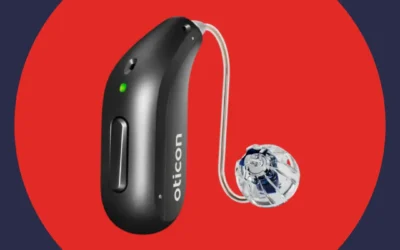Heart and Hearing Health
February is American Heart Health Month, which is the perfect time to highlight the connection between heart and hearing health. Research shows that caring for your heart not only benefits your cardiovascular system but also helps preserve your hearing.

The Heart-Hearing Connection
Studies have established a clear link between cardiovascular health and hearing ability. The tiny blood vessels in your inner ear play a critical role in your hearing. They transport oxygen-rich blood to the inner ear, keeping it healthy. However, when heart health declines, these blood vessels struggle to deliver the necessary blood flow. This restricted blood supply damages the delicate structures responsible for processing sound, like hair cells in the cochlea.
These cells cannot regenerate without adequate blood flow, resulting in permanent hearing loss. Cardiovascular disease (CVD), which disrupts circulation, can directly affect these essential ear components. Preserving your cardiovascular health is vital for maintaining your hearing.
How Cardiovascular Disease Affects Hearing
Cardiovascular disease develops when blood vessels become narrowed or blocked, reducing the amount of oxygen-rich blood circulating throughout the body. This includes the inner ear, which depends on consistent blood flow to function properly. When these vessels harden or are blocked, the cochlear hair cells—the sensory cells vital for detecting sound—experience damage.
The damage caused by poor circulation leads to sensorineural hearing loss, making it difficult to perceive and understand sounds. This form of hearing loss is irreversible. However, with the help of hearing aids and other amplification devices, individuals can manage the condition. CVD not only impacts your heart health but has significant effects on your overall auditory health.
Hearing Loss: A Sign of Cardiovascular Issues?
Hearing loss may be an early warning sign of cardiovascular problems. Research suggests that reduced hearing ability, especially sudden or unexpected hearing loss, could signal underlying heart issues. Poor heart health reduces blood flow, and this often manifests first in smaller vessels, like those in the inner ear.
If you experience sudden hearing changes, especially without obvious cause, it’s important to consult both a cardiologist and an audiologist. Addressing cardiovascular issues early can help prevent further hearing damage, preserving both your heart and auditory health. Ignoring hearing loss might lead to undiagnosed heart problems that worsen over time. Taking care of both systems is essential to maintaining overall health.

How to Protect Your Heart and Hearing
Maintaining a healthy heart benefits your overall health, including your hearing. Follow these steps to protect both:
- Eat a heart-healthy diet.
- Exercise regularly to improve circulation.
- Manage stress effectively.
- Avoid smoking and tobacco products.
- Monitor and maintain healthy cholesterol and blood pressure levels.
These habits reduce your risk of cardiovascular disease and its impact on hearing.
Symptoms to Watch for
There are signs that your hearing might be affected by cardiovascular health issues. Watch for these symptoms:
- Sudden hearing loss in one or both ears.
- Persistent ringing in the ears (tinnitus).
- Difficulty understanding conversations, especially in noisy environments.
If you experience any of these symptoms, seek a hearing evaluation promptly. Early detection can help prevent the dangers of untreated hearing loss.

Regular Hearing Evaluations
Your heart and hearing health are closely connected. By prioritizing cardiovascular wellness, you can protect your hearing from long-term damage. Just as regular heart checkups are essential, so are hearing evaluations. Annual hearing assessments can detect early signs of hearing loss and help you manage your hearing health effectively. Contact American Hearing + Audiology to schedule a hearing evaluation today.



